Anthony Albanese urged to come clean on Xi Jinping talks
Anthony Albanese faces demands to explain whether he expressed disapproval directly to Xi Jinping after a Chinese war ship harmed Australian navy divers.
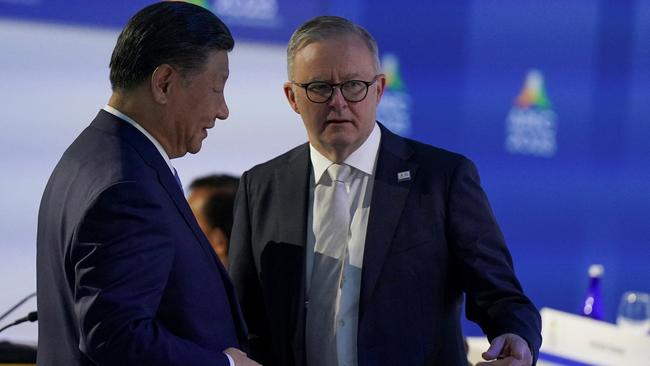
Anthony Albanese faces a new political fight over his management of the China relationship and demands to explain whether he expressed disapproval directly to Xi Jinping at APEC after a Chinese warship injured Australian navy divers in international waters.
The Prime Minister has returned from San Francisco to calls for him to reveal whether he personally raised the incident with his Chinese counterpart following a horror week in which the government was forced to capitulate to Peter Dutton’s demands for far-reaching controls over criminals released from immigration detention.
Defence experts said the close encounter was a reminder of the fragility of the government’s project to stabilise relations with China, with the opposition saying Beijing’s actions were falling short of its promise of improved relations.
The government waited until after the conclusion of APEC to reveal that divers with the Royal Australian Navy suffered minor injuries after being subjected to sonar pulses from a Chinese warship. The incident occurred in Japan’s exclusive economic zone on November 14 – a full day before the Prime Minister left to attend APEC.
Defence Minister Richard Marles said the Australian government had “expressed its serious concerns to the Chinese government” and blasted the conduct as being “unsafe and unprofessional.”
Opposition defence spokesman Andrew Hastie called on Mr Albanese to “immediately disclose whether he raised this matter with President Xi, or whether it was withheld for expedient political purposes.”
He said the incident undermined the normalisation of relations with Beijing being championed by Mr Albanese, and the Chinese People’s Liberation Army-Navy (PLA-N) had engaged in provocative behaviour that “contradicts the government’s belief they are witnessing a stabilisation of the relationship with China”.
“This incident is evidence to the contrary,” he said.
Opposition home affairs spokesman James Paterson told The Australian that “this conduct by the People’s Liberation Army navy is irresponsible, dangerous and aggressive”.
“It’s certainly not the act of a friend and it is completely contrary to the warmth and the apparent friendship that was displayed in Beijing only a couple of weeks ago when the Prime Minister and the Foreign Minister were there,” he said.
“On one hand, China says it wants a better relationship with Australia and on the other hand it takes dangerous manoeuvres that put the safety of Australian personnel at risk.”
Strategic Analysis Australia director Peter Jennings said the incident showed that China was “changing none of its behaviours and, in fact, it is getting significantly more aggressive”.
“This is only going to end one way – there is going to be a military incident at some point. A ship will be sunk and people will be killed or an aircraft shot down,” he said.
“Albanese should have made a point of seeking out Xi to say we’re not going to be able to sustain our strategic partnership if you continue to operate like this.
“More than that, I think it was imperative that he should have done that. I don’t imagine Xi Jinping knows about every incident that his armed forces are engaging in and to have a foreign leader say ‘This is a really serious issue’, isn’t this what this dialogue is supposed to achieve?”
Senior fellow at the Lowy Institute Richard McGregor said: “We’ll have to see if there is any explanation from the Chinese.”
“But even if there were one, the incident is a reminder of how fragile the government’s stabilisation narrative is, and the pitfalls of claiming too much credit at home for any improvement in ties with Beijing,” he said.
While Mr Albanese concluded the APEC summit in San Francisco by revealing he had a long conversation with Mr Xi and Chinese Foreign Minister Wang Yi, he declined to say whether he raised the incident with them.
After he visited Beijing earlier this month, the first Australian prime minister to do so in seven years, Mr Xi told him it was important to “keep moving forward the comprehensive strategic partnership between our countries”.
Mr Albanese also invited Mr Xi to visit Australia at a “mutually beneficial time”.
The recent APEC meeting was dominated by the meeting between Joe Biden and Mr Xi, with Mr Albanese saying the resumption of military dialogue was key to preventing miscalculations that could cause “real conflict”.
Home Affairs Minister Clare O’Neil told Sky News on Sunday the incident involving the Chinese warship was “absolutely unacceptable” and the “safety of Australian military personnel is paramount to the government.”
The Australian divers were hurt while performing a mission in support of UN sanctions enforcement, with Mr Marles saying the HMAS Toowoomba was in international waters in Japan’s exclusive economic zone when the incident occurred. The Australian vessel had stopped to conduct diving operations in order to clear fishing nets from the propellers when it was approached by the Chinese destroyer, despite communications advising that diving operations were being conducted.
Despite acknowledging Toowoomba’s communications, the Chinese vessel approached at a closer range and was detected operating its hull-mounted sonar in a manner that posed a risk to the safety of the divers.
Australia Defence Association executive director Neil James said there was “no simple answer” as to whether Mr Albanese should have raised the incident with Mr Xi. “The obvious answer is it was worth including it in the conversation but you’d have to know what DFAT’s game plan was,” he said. “It may have been DFAT advised to cop it on the chin to get something of greater value in the trade cycle.”
“It’s the aftermath that’s important because there’s no doubt the Chinese ship did this deliberately. And it wasn’t just negligence. It was callous. It’s a pretty serious incident.”
Additional reporting: Simon Benson


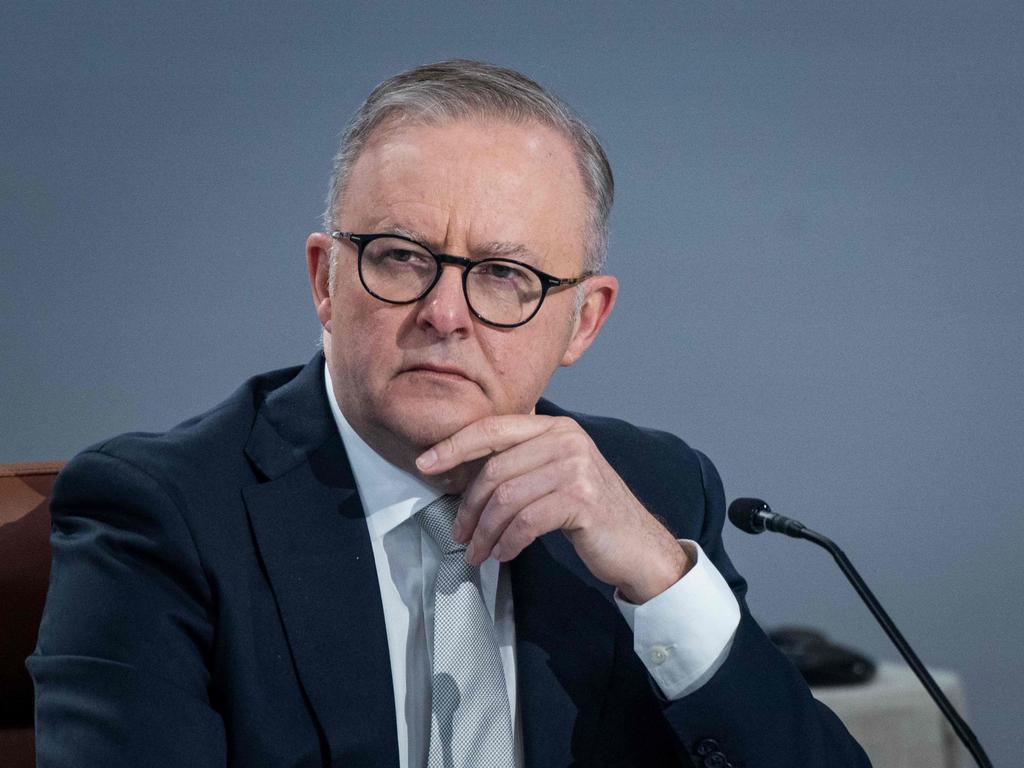
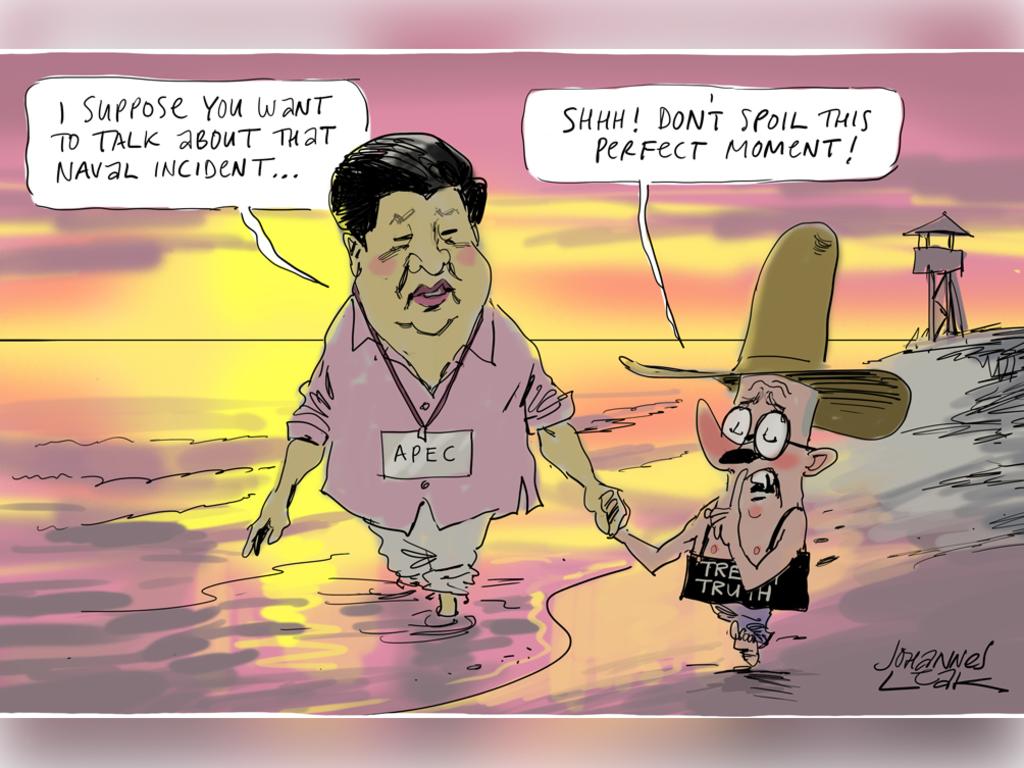
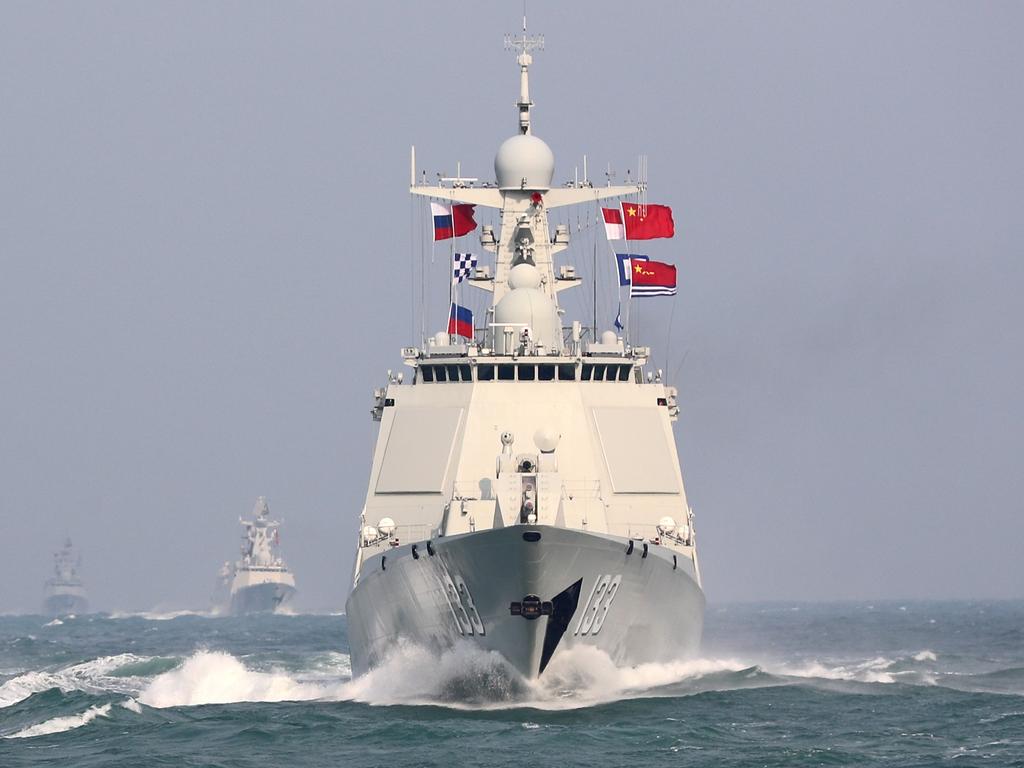
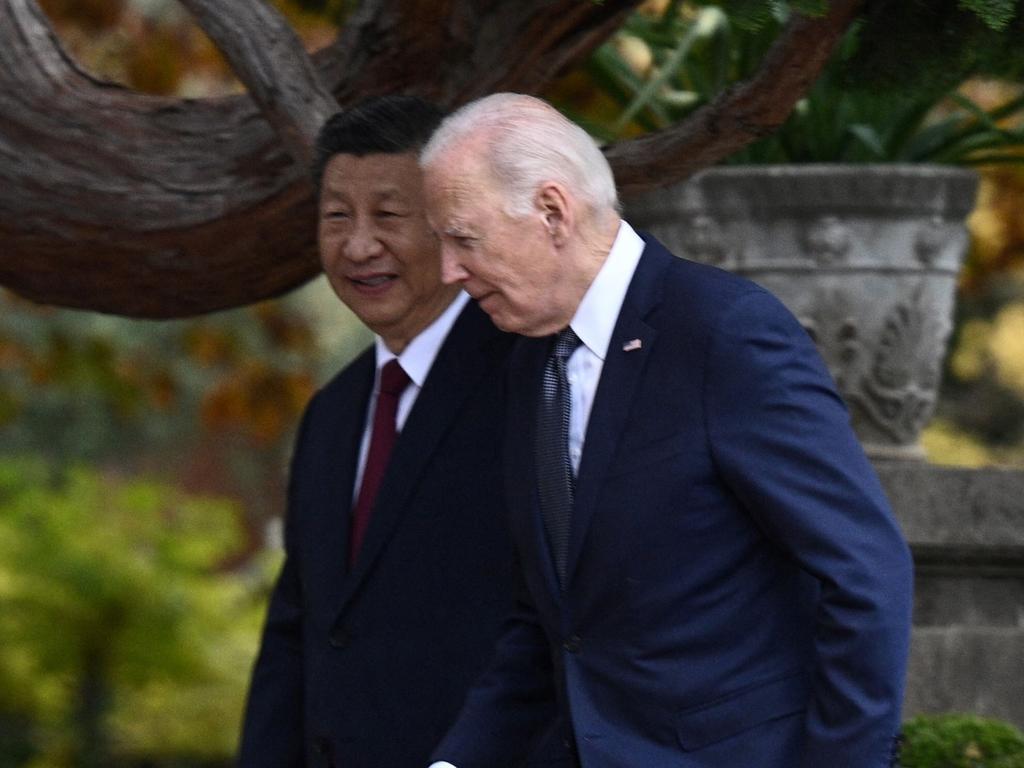


To join the conversation, please log in. Don't have an account? Register
Join the conversation, you are commenting as Logout